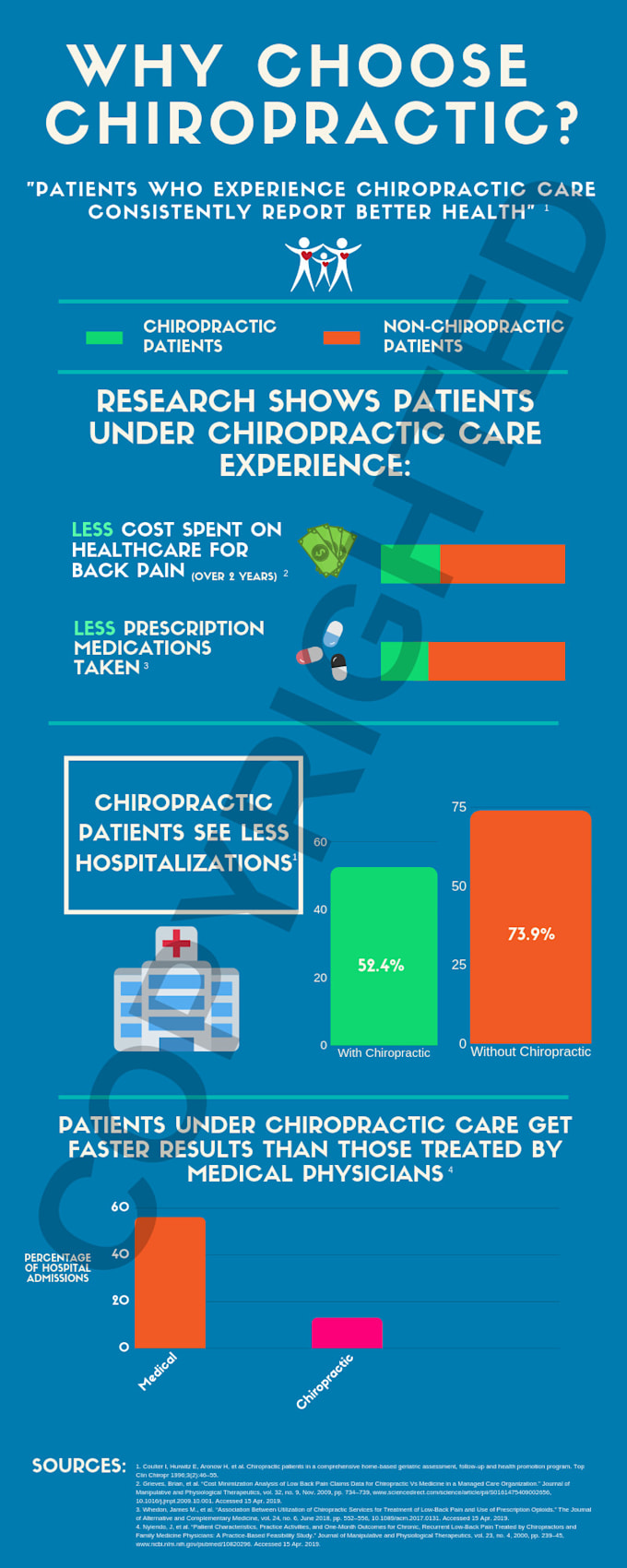The Impact Of Diet On Back Pain Administration: Foods To Integrate And Foods To Exclude
The Impact Of Diet On Back Pain Administration: Foods To Integrate And Foods To Exclude
Blog Article
Writer-Singer Nicolajsen
When it comes to handling your pain in the back, the food selections you make can substantially influence exactly how you feel every day. Imagine having the ability to relieve your discomfort simply by adjusting what you eat. By recognizing the role of nourishment in neck and back pain administration and understanding which foods to integrate or steer clear of, you can take positive actions in the direction of a healthier and much more comfortable way of life. The link between nourishment and back health and wellness is extra profound than you might realize-- allow's explore just how particular foods can either calm or exacerbate your neck and back pain.
Relevance of Nutrition in Pain In The Back
Nourishment plays a critical function in managing back pain. Your diet plan can dramatically influence swelling levels and overall pain degrees in your back. Taking in a well balanced diet regimen abundant in nutrients like vitamins D and K, calcium, magnesium, and omega-3 fatty acids can help in reducing inflammation and strengthen bones, which are vital for back health and wellness.
In addition, keeping a healthy weight via correct nutrition can alleviate tension on your back, lowering the danger of neck and back pain.
Furthermore, particular nutrients like anti-oxidants located in vegetables and fruits can help combat oxidative stress and promote recovery in the body, including the back muscle mass and spine.
On the other hand, taking in too much amounts of processed foods, sweet beverages, and harmful fats can contribute to inflammation and weight gain, exacerbating neck and back pain.
Foods to Consume for Back Wellness
To sustain a healthy and balanced back, incorporating nutrient-rich foods right into your daily dishes is essential. Including foods high in anti-oxidants like berries, spinach, and kale can help in reducing inflammation in your back, relieving pain and pain. Omega-3 fatty acids located in fatty fish such as salmon and mackerel have anti-inflammatory homes that can benefit your back health and wellness.
Furthermore, eating nuts and seeds like almonds, walnuts, and chia seeds provides crucial nutrients like magnesium and vitamin E, which sustain muscle function and lower oxidative stress and anxiety. Incorporating lean healthy proteins such as chicken, turkey, and tofu can aid in muscular tissue repair work and maintenance, advertising a strong back.
Don't neglect to include dairy products or fortified plant-based options for calcium to support bone wellness. Lastly, hydrate with plenty of water to keep your back discs hydrated and working optimally. By consisting of these nutrient-dense foods in your diet plan, you can nourish your back and assistance total spine wellness.
Foods to Prevent for Pain In The Back
Choose preventing refined foods high in added sugars and trans fats when looking for relief from pain in the back. These kinds of foods can contribute to swelling in the body, which may aggravate pain in the back. Say no to sugary treats sweet, breads, and sweet beverages, as well as junk food items like hamburgers, fries, and fried poultry that are frequently filled with trans fats.
In addition, avoid foods including high levels of polished carbohydrates, such as white bread, pasta, and breads, as they can increase blood glucose degrees and possibly intensify inflammation in the body.
It's also a good idea to restrict your intake of foods high in saturated fats, like red meat and full-fat dairy items, as they can contribute to swelling. Processed foods like delicatessens meats, chips, and packaged snacks are commonly high in saturated fats and need to be consumed in moderation.
does medicare pay for chiropractic care
In conclusion, taking note of your diet regimen and making smart food choices can have a significant influence on managing back pain. By integrating related web-site -rich foods like berries, fatty fish, nuts, and lean proteins, and preventing processed and sugary products, you can help in reducing swelling and assistance overall back health. Remember, what you consume plays a critical function in how you feel, so make certain to prioritize your nutrition for a healthier back.
